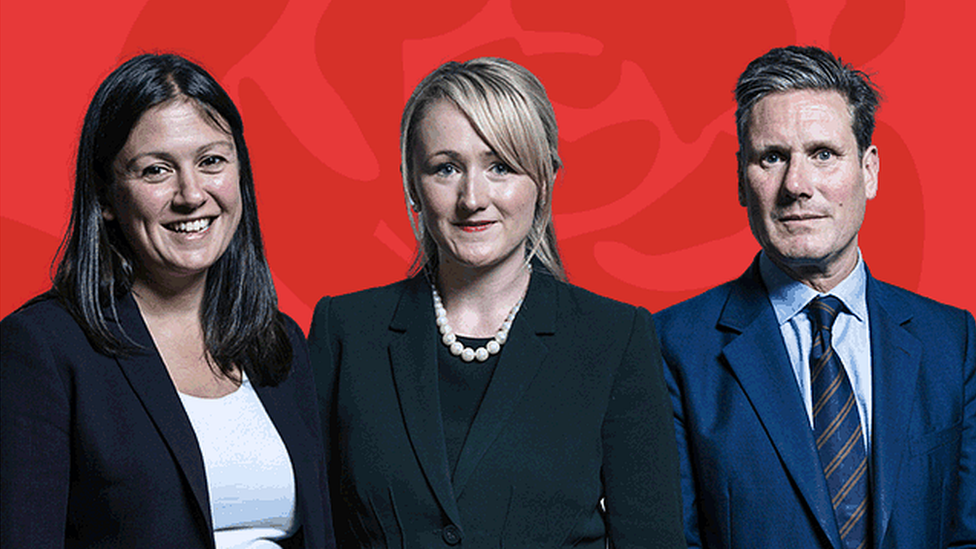Rebecca Long-Bailey: What's in a hyphen?
- Published
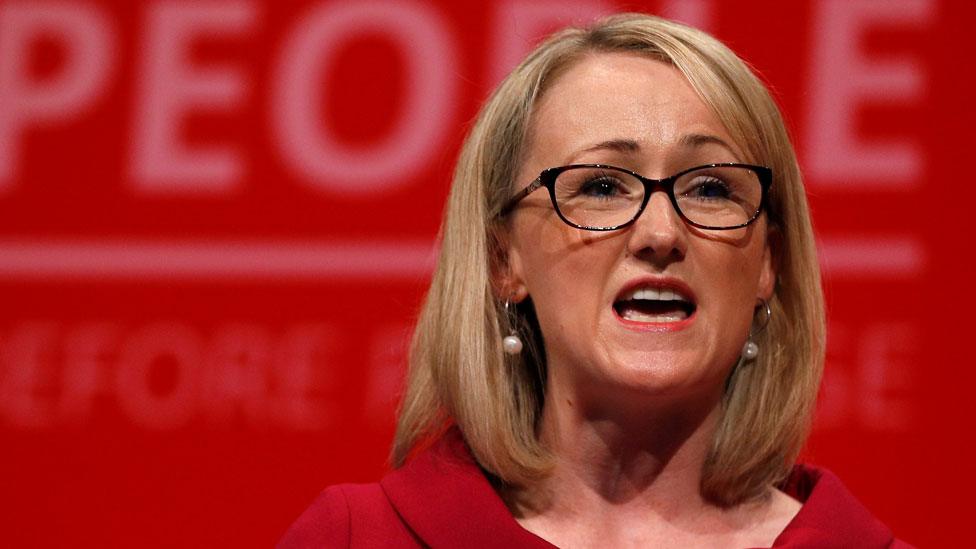
To hyphenate or not hyphenate? That is the question that's come up due to confusion over how Rebecca Long-Bailey - or should that be Long Bailey? - styles her name.
The Labour leadership contender's team had told media, including the BBC, that her surname officially had no hyphen. It appears that way on her UK Parliament page and her own website too.
But it is written as Long-Bailey on her Twitter page (although her handle uses an underscore instead). Then came word from the MP herself. "There actually is a hyphen but I'm not bothered," she told Sky News on Sunday.
The confusion seems to have come about because Mrs Long-Bailey doesn't mind either variation - and she's not alone in her indifference, with Helena Bonham Carter also having previously said the hyphen in her own name was "optional".
The issue of hyphens gets more complex when someone joins the House of Lords, with peerage rules demanding a double surname be hyphenated (so it's Andrew Lloyd Webber but Lord Lloyd-Webber, and Martha Lane Fox but Baroness Lane-Fox).
But where there is a choice, why do some choose a hyphen where others don't?
'Making themselves distinctive'
Jane Pilcher, associate professor of sociology at Nottingham Trent University, studies surnames and is interested in how people choose what to name themselves.
"It's all linked to identity and what people want to say about themselves through the naming choices they make," she said. "People are freer from traditions now. They want to mark themselves out and make themselves distinctive.
"Whether you choose a hyphen or not comes into that. It's a matter of identity and what you want to say about yourself - there are no strict rules about it. More broadly, it's part of the societal trend towards individualisation so you stand out from the crowd more.
"Perhaps someone who wants a two-part surname doesn't want to be seen as conventional and would not choose to hyphenate as a result. Where hyphens sit is not a massive issue - but I would say the absence of one is even more informal and less traditional."
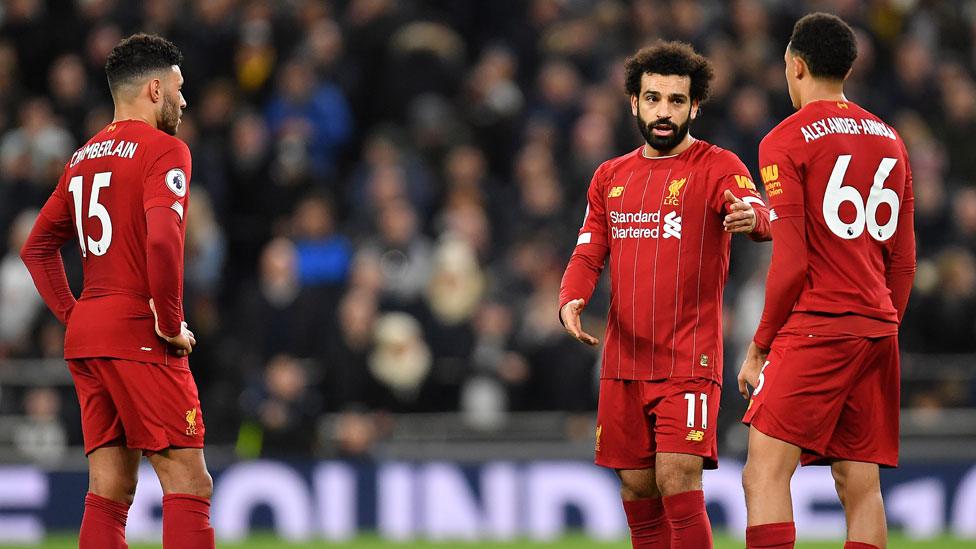
Alex Oxlade-Chamberlain, left, only has one surname on his shirt while Trent Alexander-Arnold gets both
Dr Pilcher says some choose one surname when they marry, some choose two - and some choose to blend names, as is the case with presenter and writer Dawn Porter who became Dawn O'Porter when she married actor Chris O'Dowd.
She says that there is also now an increased visibility of names.
"People are more aware of surnames now. When I left school, we never had hoodies with all the leavers' surnames on - now you see them all the time, and there are double-barrelled names in a mix of other names.
"And with footballers' shirts - they never used to have last names and now many footballers have two surnames. It's increased people's awareness and showed there are options."
She kept her own surname when she got married but her children have two surnames.
"We chose not to use a hyphen because it aesthetically looked better that way," says Dr Pilcher. "But people will put a hyphen where there isn't one, so we're in a constant battle with schools and doctors' surgeries to record their name as it is officially.
"Having that second surname makes you a much more individual person, and more recognisable. My son is a musician and now sees it as a plus that he has two surnames."
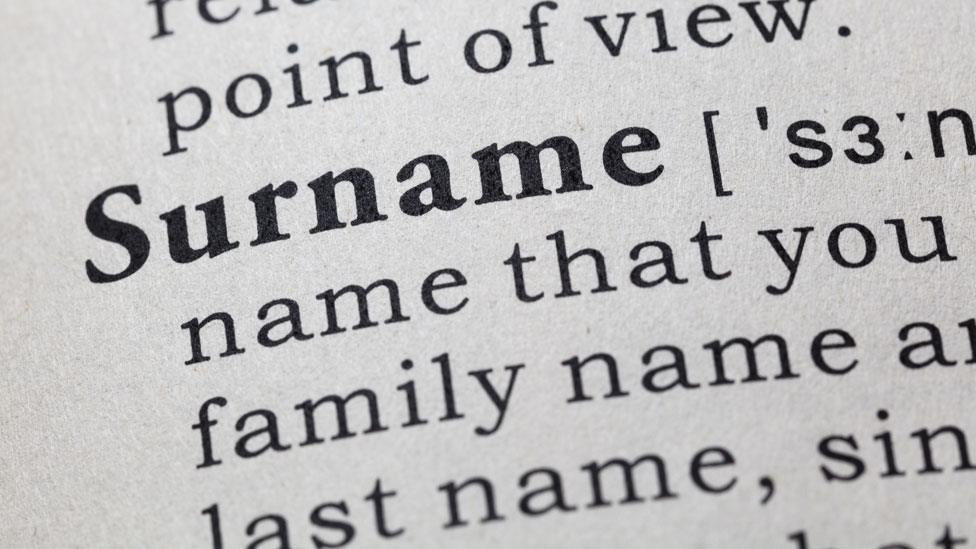
Writer and journalist Carmody Wilson Hallamore agrees that having two surnames can be a bonus.
She took on her second surname - Hallamore - when she got married and enjoys the flexibility of being able to choose how to style her name for different circumstances. Having a hyphen, she said, would have made it "too long and too formal".
She added: "I like that I have options and the hyphen feels like a chain which would force me to use the double-barrel only."
It's not without complications, though - she says both names were put on her office door, and they ran out of space as it was too long.
'Best to be consistent'
Professor Richard Coates, who took part in a widespread study of UK surnames as part of a University of the West of England team, said: "The more traditional British way of doing it is to hyphenate with another surname. It's become more common now with children born to unmarried parents or where a woman has chosen to keep her maiden name as well.
"In other traditions such as Spain and Portugal, everyone has always had two surnames so there is no tradition of hyphenating at all."
Solicitor Joanne Ford Pereira said she took her Portuguese husband's surname when she married - aligning with his country's tradition of keeping your maiden name and adding your husband's surname, with no hyphen.
"My husband wouldn't have cared either way, but I liked the convention and I like that Alice, my daughter, now has her maiden name as part of her surname. I'm one of three girls and we have no cousins on my dad's side so Ford would have gone once we were all married."
Etiquette consultant Jo Bryant said: "It is becoming more common to have two surnames as there are different kinds of union and different attitudes to marriage.
"There is a lot of personal choice over whether you should or shouldn't hyphenate but it's best practice to be consistent. It's helpful to others to know how to address you in correspondence."
That's to avoid the "hyphen or no-hyphen confusion" as seen in the case of Mrs Long-Bailey.
Ms Bryant adds: "There's no right or wrong way, but it's more of a practical issue and about avoiding faux pas by getting it wrong."
- Published8 May 2019
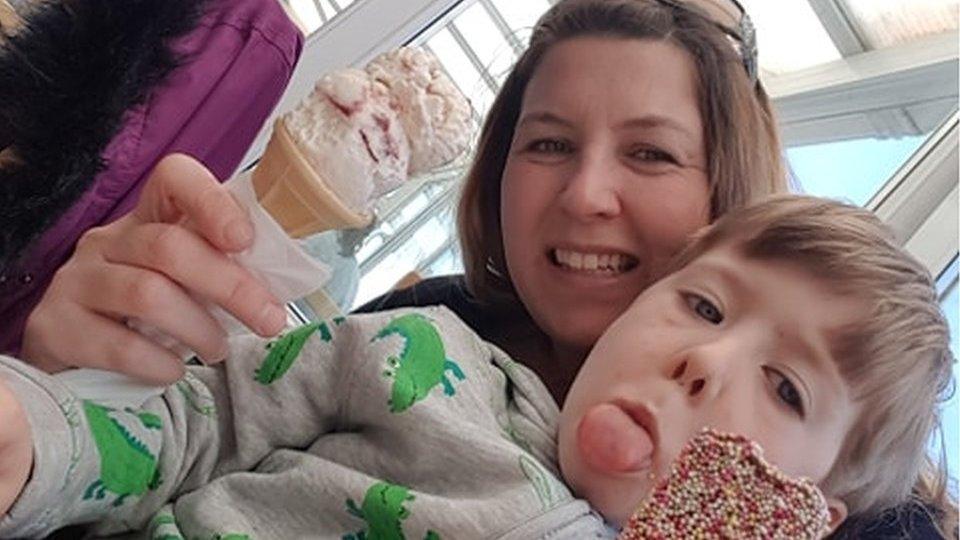
- Published17 November 2016
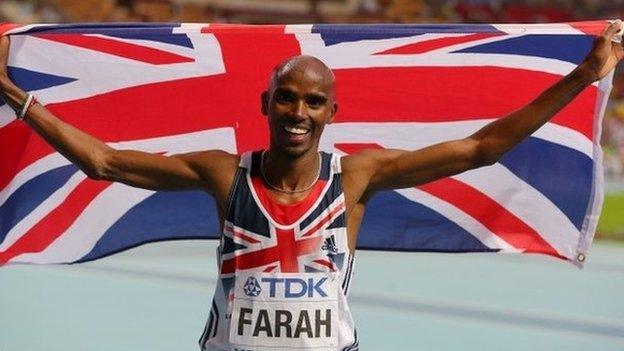
- Published17 November 2016
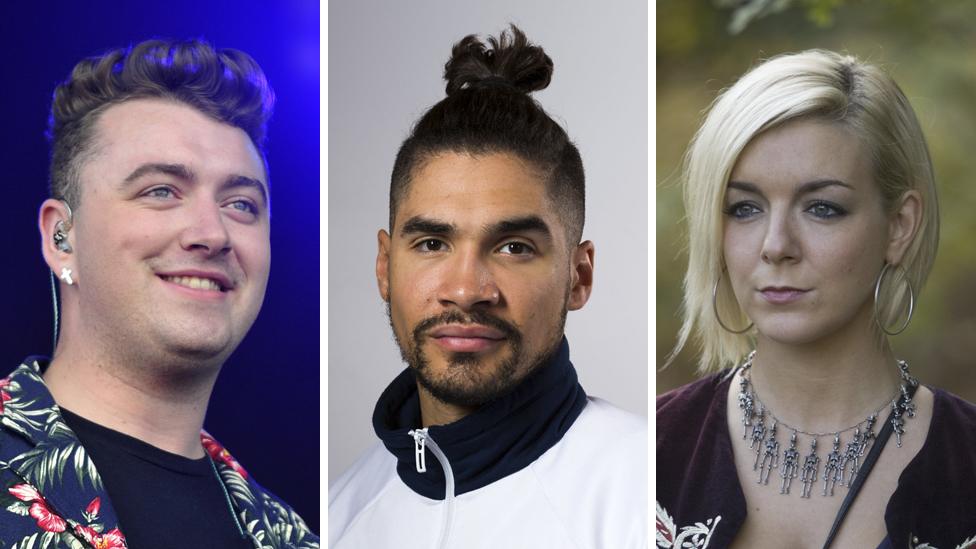
- Published1 November 2014
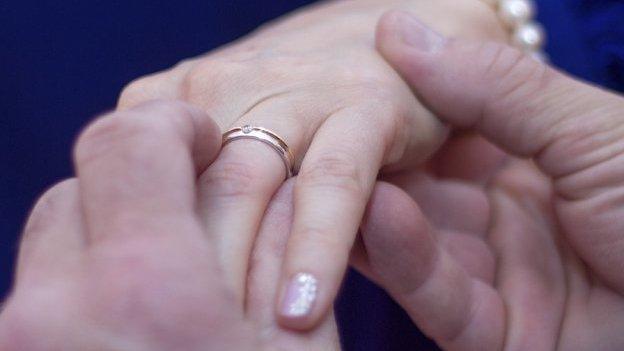
- Published25 June 2020
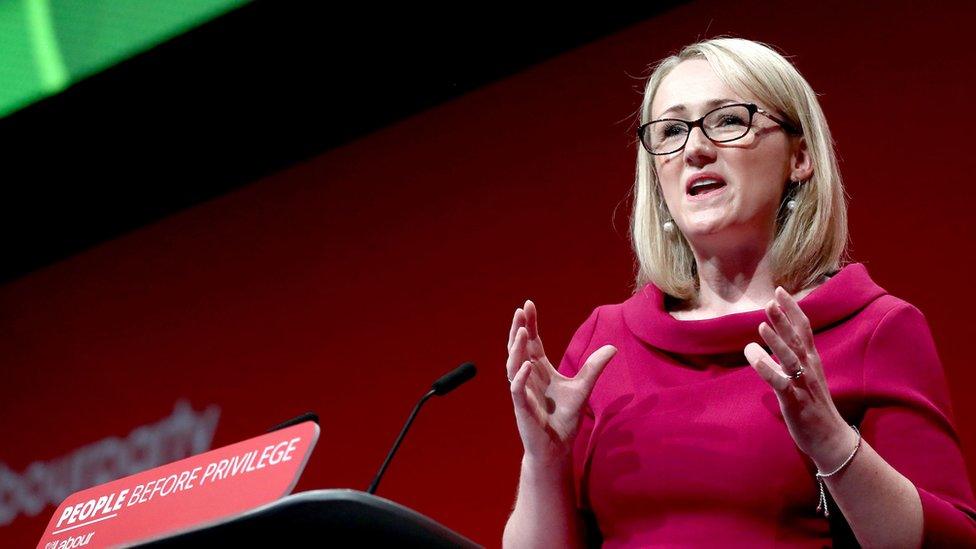
- Published18 February 2020
